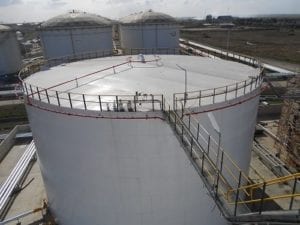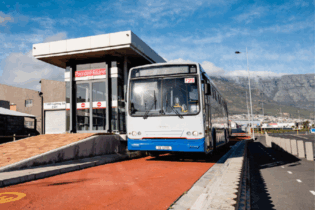Engen has constructed a third petroleum products terminal in Mozambique aimed at fuelling growth in the country and increasing supply in East Africa.
The new depot will supply petrol, diesel and lubricants to the main hubs in the country, as well as other countries in the Southern African hinterland where Engen has operations, including Zimbabwe. The depot’s strategic value is to ensure we meet our growth and future market share targets and to establish another supply corridor into Southern Africa. This will ensure security of supply for Engen’s operations there, says Teodomiro Sarmento, managing director of Engen Mozambique. “Having sufficient capacity in the region will reduce our dependency on third parties, lessen our cost of supply through pipeline, and improve efficiencies.” Drikus Kotze, general manager in Engen’s International Business Division, says the investment reaffirms Engen’s strong commitment to the Mozambican market and the African continent.“Where others have disinvested in search of more profitable upstream opportunities elsewhere, Engen has invested extensively in these regions, supplying infrastructure, harnessing local skills and business partnerships, and giving back to the communities and natural environments in which we operate.”
The company has been on a recruitment drive to find local staff to run the depot and all positions have now been filled with local personnel. The depot is fully operational and the first pipeline injections will be undertaken in the first quarter of 2015. Engen’s strong commitment to the region comes despite many challenges to its operations, including being hamstrung by logistical and geographical challenges. The building of the terminal itself also presented significant challenges, says Durrel Gibson, special projects manager at Engen. “Among others, heavy unseasonal rains resulted in increased expense, due to us having to have resources on stand-by. Challenges were also experienced to obtain approvals for transferences of imported equipment and resources, compounding the logistical issues we had with transport.”






